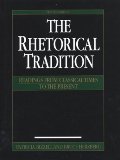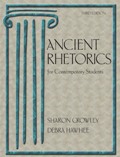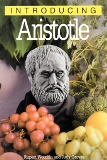 English 5364 provides an introduction to Classical rhetoric with an emphasis on practical application of rhetorical principles in contemporary technical communication and rhetoric in the workplace and academe. Primary readings from Greek and Roman antiquity include the sophists, Isocrates, Plato, Aristotle, Cicero, and Quintilian. The course revolves around three ancient beliefs about composing: 1) it is not possible to think or to write without reference to the culture in which the thinker or writer is living in; 2) argumentation is a positive; and 3) people compose to make positive change (Crowley and Hawhee). 5364 is an online, workshop-style course. The class meets Monday 6-7:30pm CST every week from June 5 to August 7 in the TTU Department of English MOO. If you have firewall problems with the MOO, this memo may help as you speak with IT Support. If the MOO is down, we will use YahooIM. In addition to online materials, we will make use of the following: English 5364 provides an introduction to Classical rhetoric with an emphasis on practical application of rhetorical principles in contemporary technical communication and rhetoric in the workplace and academe. Primary readings from Greek and Roman antiquity include the sophists, Isocrates, Plato, Aristotle, Cicero, and Quintilian. The course revolves around three ancient beliefs about composing: 1) it is not possible to think or to write without reference to the culture in which the thinker or writer is living in; 2) argumentation is a positive; and 3) people compose to make positive change (Crowley and Hawhee). 5364 is an online, workshop-style course. The class meets Monday 6-7:30pm CST every week from June 5 to August 7 in the TTU Department of English MOO. If you have firewall problems with the MOO, this memo may help as you speak with IT Support. If the MOO is down, we will use YahooIM. In addition to online materials, we will make use of the following:
Learning Objectives
The objective of the humanities in general is to expand knowledge of the human condition and human cultures, especially in relation to behaviors, ideas, and values expressed in works of human imagination and thought. Through study in disciplines and subjects such as technical communication and rhetoric, students will engage in critical analysis and develop an appreciation of the humanities as fundamental to the health and survival of any society. Upon completion of this course, students will be able to demonstrate thinking and skills related to:
- Audience awareness. Students will analyze audience and purpose in rhetorical situations and make appropriate choices. Measurement: observation and analysis of artifacts produced.
- Critical thinking. Students will become more conscious of their processes for planning, drafting, revising, and editing of writing. Students will take an active role in summarizing, synthesizing, and presenting course content. Measurement: completion of informal and formal writing assignments at a quality level. Completion of class transcript editing and revising.
- Diversity and multiculturalism. Students will generate the type and amount of information required by a given rhetorical situation. Measurement: active participation in classroom discussion and blogs.
- Grammatical information presentation. Students will arrange material to elicit the intended audience's response achieve an effective tone and voice for a given rhetorical situation. Measurement: successful completion individual presentation.
- Stylistic information presentation. Make stylistic choices appropriate for a given rhetorical situation. Measurement: successfully create and report on contemporary applications of classical rhetorical thinking through collaboration.
- Communication skills. Understand how to present a proposal orally, using appropriate visuals. Measurement: successfully create, manage, produce, and report on artifacts through collaboration.
Sophists
Dr. Rich Rice can be reached through r.rice@ttu.edu, ricrice@gmail.com (for files over 2 megs), ricrice2000 (YahooIM), 206.339.6626, or 806.742.2500 x285. Office hours are MTWRF 8-11am online or by appointment.
quickLinks
There is much information about classical rhetoric online. In fact, some of the most important materials for this course can be find by doing a quick search on key terms. Please study and take advantages of these resources. Please email me to add to this list.
Requirements
I accept revisions on all work, but my time to offer substantial feedback gets limited as the semester draws on. I reserve the right not to accept late work.
- Participate in class discussion and in blogs over readings and ongoing work (20%).
- Demonstrate the contemporary value of one core classical rhetoric concept in a 10-minute video presentation for the class (due 7/30). (20%)
- Lead a short class discussion over one primary classical rhetoric reading. To be scheduled the first day of class. (10%)
- Complete a 20-page term paper/project with instructor and peer support (due 8/7). Drafts and purpose negotiable as defined by the class. Your project should apply a classical rhetoric concept learned for a contemporary purpose. Use source material. (40%)
- Present and discuss an abstract and/or outline of the paper as the final (due 8/7). (10%)
Schedule
| week | |
topic |
(1)6/5
 

|
- B/H pp. 19-37
- C/H Chapters 1-2
|
General Intro. Today we will examine the syllabus, the books, and answer any questions you may have while in the MOO. By each Tuesday night, too, I will provide a blog prompt for the following week that I'd like you to write about. Your blog is a tool for reflection and for note taking on what you do for your grant work. Read and offer comments on at least two other classmates' blog entries every week. Our class meets from 6-7:30pm CST every Monday. After each week's class I will ask someone to edit the MOO transcript and we'll post it on the schedule as a PDF for your review if needed. I may present a short video lecture each week, too, that you should review before class. You will need the latest version of Windows Media Player (for either mac or pc) to view the video. Let me know right away if you're having trouble viewing them. Sometimes I decide to wait on producing the video until I hear from people in blogs or in class, etc., so I'll let you know when they're available for review via email. For class this week read Bizzell/Herzberg's introduction to classical rhetoric. Read also the first two chapters in Crowley and Hawhee. During class I will ask each of you to select a reading to present on from the classical rhetoric section of B/H. Each of you will become an expert on that reading and prepare a short discussion on it. Please select from the following and email me (first come first served):
Please don't forget to post your blog entry before class, and try to comment on at least two peers' blogs directly after class. During class this week Alec came up with a good idea for our projects, related to our blogs: please put in a note each week in your blog that pertains to your idea-making with your final project. And, each week others can give you direction on it. This may be brainstorming, outlining, thesis planning, an introduction, a draft, etc. General overview key terms for Classical Rhetoric:
|
(2)6/12
 

|
Stasis Theory. During class last week Alec came up with a good idea for our projects, related to our blogs: please put in a note each week in your blog that pertains to your idea-making with your final project. And, each week others can give you direction on it. This may be brainstorming, outlining, thesis planning, an introduction, a draft, etc. You should post on blog prompt 2 (the  to the left) before class, and comment on two other blogs as soon as you can this week. We may have auditors from time to time in our class. FYI. Kendall will present over Encomium of Helen. I'd like us to talk more about kairos from Chapter 2 in C/H as well as stasis theory and the Encomium. Have you read others' blogs yet? Have you thought about your project yet? Have you caught the "introduction" video for Week-1? Might be a good review before class this week. to the left) before class, and comment on two other blogs as soon as you can this week. We may have auditors from time to time in our class. FYI. Kendall will present over Encomium of Helen. I'd like us to talk more about kairos from Chapter 2 in C/H as well as stasis theory and the Encomium. Have you read others' blogs yet? Have you thought about your project yet? Have you caught the "introduction" video for Week-1? Might be a good review before class this week.

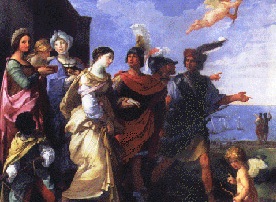
 Remember: kairos involves saying the right thing at that right amount at the right time (fitness for the occasion); and stasis theory is, literally, finding "a stand." Once you know if your argument is theoretical or practical, you can use heuristics involving questions of conjecture, definition, quality, and procedure. Isn't this beautiful? Isn't language beautiful? Deceptive, sure. Everything that is beautiful is.
|
(3)6/19
 

|
Commonplaces (sneak preview--the anti-isolationist truth-seeking). Lennie will present Isocrates's "Against the Sophists." Gillian will lead us in discussion about Isocrates's Antidosis. Study and practice, study and practice, study and practice. I'm very impressed by blogs, and they are quickly becoming commonplaces for our ideas. Do keep at them. Write what you know in them; doing so reinforces these ideas and becomes a generative process for applying them in the contexts of your own experiences. You might enjoy reading "The Common Place MOO: Orality and Literacy in Virtual Reality" in CMC Magazine from 12 years ago. Similar to an idea Gillian is exploring with her project. A commonplace is any nugget of knowledge that is shared in a community. When we MOO, we are sharing knowledge. It is our Agora. On to Plato, the ruin of philosophy. Both Nietzsche and Heidegger (since we've been talking about them some during MOOtings) both said that philosophy never recovered from Socrates and Plato. We read some about Plato's Academy this week. The Academy lasted for around a 1000 years. It's Western civilizations first university. Aristotle took over after Plato, but then went on to start his own school. Here are some pictures of where the Academy was in Athens.



|
(4)6/26
 

|
True/False Rhetoric. Janie will present over Plato's Gorgias. The legend of the Academy lives on, methinks, online: see http://plato.com. Please prep for next week's look at Aristotle's Rhetoric by listening to some of Jesse Jackson's 1988 address to the DNC (per Alec's request). Here's the transcript. Weíre discussing true and false rhetoric as seen in Plato. The Gorgias asks what is the value of rhetoric. The Phaedrus continues to explore the difference between knowledge and belief. Why is "love" used as the example? The Sophist revolves around two concerns: 1) being and nonbeing; and 2) true and false speech. Might take a look at Formal Ontonology (a site from Italy regarding philosophy) for more information about the Sophist. The site explores metaphysics well too, and provides some interesting contemporary examples in other cultures. For those of you wanting to combine something from Dr. St. Amant's class and this class, you might find some useful ideas at Formal Ontology. Did you know that TTU Press produces Helios? It's a journal analyzing Greek and Roman literature.



|
(5)7/3
 
|
True/False Rhetoric and Topoi. Time will present over Plato's Phaedrus. Joel will discuss Plato's Sophist. Plato's Sophist can be found online. Made this quick instruction guide for Gillian this week on inserting graphics into MovieMaker. If you're interested in using MM, this might be useful. The Phaedrus continues to explore the difference between knowledge and belief. Why is "love" used as the example? The Sophist revolves around two concerns: 1) being and nonbeing; and 2) true and false speech.
See Fawn and Kendall at the "Body Worlds Exhibit" in Austin.
|
(6)7/10
 
|
Appeals. Alec will be leading the discussion on Aristotle's From Rhetoric. He will focus on defining rhetoric; examining forensic, deliberative, epideictic oratory; and defining ethos, pathos, and logos. Barbara will be leading the discussion on Aristotle's Metaphysics. The selections I'd like you to read of Metaphysics and Poetics are linked here, and the Rhetoric selection is in B/H. A few people have asked questions about the final paper. Topics can be changed if youíve already given me a topic. No worries. I donít have a recommended number of sources you might have, other than as many as it takes. I do expect papers to include research. MLA or APA style is fine with me. Whichever youíre most familiar with. Iím a stickler with either, however, and I expect Works Cited or Reference lists to be perfect. Iíd be happy to look at drafts. If you havenít already, you will want to begin doing some research on your paper topics. You might begin writing components of it in your blogs. Iíve been reading some thesis statements, for instance. Excellent blogs, yíall. Really enjoying them. Very thorough. I sense youíre learning a lot through them. Good reinforcement and thinking. Best blogs in a class Iíve ever seen, really. By class time this week, please send me your tentative 10 minute ďvideoĒ topic. Thereís a growing list at the bottom of the schedule on our class site. The following links come from Alec and might be useful if you're learning how to use your webcam to make videos:
iMovie:
MovieMaker:
Rich has provided a video detailing Aristotle's Poetics.
|
(7)7/17
 
|
Invention Revisited. Fawn will discuss Cicero's From De Oratore. Alison will walk us through Anonymous's Rhetorica ad Herennium. How much does a copy of Cicero's work cost today? Here's a printing from around the 1800s for about $1500. Random cool workstation setup of the week. What's your office space like? Is your office space Platonic or Aristotelian? In what way are our office spaces commonspaces? How are they glimpses into what's available in the world? Access points to topoi? Kendall and Fawn might spend some time telling us about the Body Worlds exhibit. Also, Rich has provided a video detailing Aristotle's Poetics if you'd like a quick overview.

|
(8)7/24
 
|
Combining Plato and Aristotle. Rich will present on Quintilian. Glenn will lead the discussion on St. Augustine's On Christian Doctrine. Glenn has prepared a video and a PPT. Here are some links from Time on copyright and podcasting; there's relevance here to Augustine when you think about it.
Sometimes I think about the complexities of Pythagoras and how much influence his work has on classical rhetoric (through Plato, primarily). Then, other times, I think of its simplicity...harmony.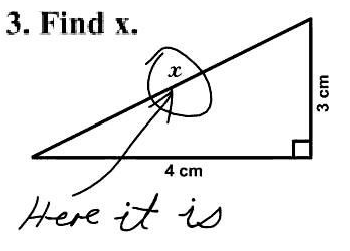
|
(9)7/31
 
|
A Review. Cynthia will lead our talk about Castelvetro's The Poetics of Aristotle. I have just made a PDF of Castelvetro, from Adams and Searle's Critical Theory Since Plato. We will do a quick summary of each of the major rhetors we've studied in this course. And prior to class, please review the following core classical rhetoric principle presentations by class members, and you might use this guide to take notes on or use your blog or your peers' blogs:
Please review these videos prior to class so that our discussion becomes more Q/A during our MOOting. I had to convert some files in order to stream them but their higher resolution originals (*) are available for download too. Transcripte edited by Fawn Musick.
|
(10)8/7
 
|
Projects. Clear video on Aristotle's cause. Might be of interest. Final project due by midnight. For class next week, please plan to present an abstract and/or outline of your work to the class during our MOOting. You might prepare your abstract in your blog, as a PDF file, as a PPT file, as a video, as straight text to paste in, etc. Your call. Please send it to me when you can so that I can link it in through our class site. If a blog post, please remind me. Thanks.
|
Academic Honesty and Appropriate Behavior Online
We are committed to academic integrity in all its practices. The faculty value intellectual integrity and a high standard of academic conduct. Activities that violate academic integrity undermine the quality and diminish the value of educational achievement. Cheating on papers tests or other academic works is a violation of College rules. No student shall engage in behavior that, in the judgment of the instructor of the class, may be construed as cheating. This may include, but is not limited to, plagiarism or other forms of academic dishonesty such as the acquisition without permission of tests or other academic materials and/or distribution of these materials and other academic work. This includes students who aid and abet as well as those who attempt such behavior. Further, you are expected to follow "netiquette." See, also, the WPA's statement about plagiarism.
Assignment Expectations
Grade Range
A: 92.5-100%
A-: 89.5-92.4
B+: 86.5-89.4
B: 83.5-86.4
B-: 79.5-82.4
C+: 76.5-79.4
C: 73.5-76.4
C-: 69.5-72.4
D+: 66.5-69.4
D: 63.5-66.4
D-: 59.5-62.4
F: 59.4-0.0
|
The following is a general description of expectations for assignments:
- A. Your project is of impeccable (or almost impeccable) quality in both content and format design, with no major weaknesses in any area. It provides adequate information that users need and effectively fulfills the intended purposes. Presentation is of professional quality. There are few if any mechanical errors.
- B. Your project is of high quality in most of the major areas. It fulfills the user's needs and your intended purposes quite effectively. Presentation is quite professional. There are only a few mechanical errors.
- C. Your project is of reasonable quality in most areas. It fulfills the user's needs and your intended purposes to a large extent, although major deficiencies are observable. Presentation is of semi-professional quality. There are some mechanical errors, but not to the extent of seriously affecting readers' comprehension.
- D. Your project is of acceptable quality in most areas. It fulfills the user's needs and your intended purposes to some extent, but major deficiencies exist in several areas. Presentation quality is acceptable but low. There are a significant number of mechanical errors.
- F. Your project is unacceptable in quality. It does not fulfill the user's needs or your intended purposes. Major deficiencies are observed in most areas. Presentation quality is poor, and there are too many mechanical errors.
Advice
Be reflective in peer response and the revising process (be wholehearted, sincere, and responsible), and think in terms of process as opposed to product. That is, instead of dictating an authoritative "answer" or "solution" to a peer's particular point (or lack thereof), suggest a useful question that will allow for an opportunity to think beyond the immediate example or problem or issue. Tutors are available in the writing center, and I am often available to work with you on anything course-related.
Some Policy Clarifications
- Special needs.
We seek to provide effective services and accommodations for qualified individuals with documented disabilities. If you need an accommodation because of a documented disability, you are required to register with Disability Support Services at the beginning of the semester. If you will require assistance during an emergency evacuation, notify your instructor immediately.
- Late work.
Late work may be penalized one letter grade per day. Know that assignments are subject to change.
- Attendance. If you are absent, do not check your email regularly, or do not participate online you obviously cannot meet certain opportunities to learn. Also, peers' learning is disrupted. If it is clear that you are not committed to participating to this key element of the course, your grade may be reduced, or you may be asked to drop the course. Instructors may administratively withdraw a student from class enrollment for attendance and disciplinary issues with the approval of academic affairs. For attendance issues, the enrollment withdrawal may be initiated within the 60 to 75% time-period of the course. The registrar's office will notify the student if this action occurs. Regarding the observance of a religious holy day: a student will be excused from attending classes or other required
activities, including examinations, for the observance of a religious
holy day and the time necessary to travel for this observance. The
student will not be penalized for the absence and will be permitted to
take an exam or complete an assignment missed during the excused
absence. No prior notification is required.
|
 English 5364 provides an introduction to Classical rhetoric with an emphasis on practical application of rhetorical principles in contemporary technical communication and rhetoric in the workplace and academe. Primary readings from Greek and Roman antiquity include the sophists, Isocrates, Plato, Aristotle, Cicero, and Quintilian. The course revolves around three ancient beliefs about composing: 1) it is not possible to think or to write without reference to the culture in which the thinker or writer is living in; 2) argumentation is a positive; and 3) people compose to make positive change (Crowley and Hawhee). 5364 is an online, workshop-style course. The class meets Monday 6-7:30pm CST every week from June 5 to August 7 in the TTU Department of English MOO. If you have firewall problems with the MOO, this memo may help as you speak with IT Support. If the MOO is down, we will use YahooIM. In addition to online materials, we will make use of the following:
English 5364 provides an introduction to Classical rhetoric with an emphasis on practical application of rhetorical principles in contemporary technical communication and rhetoric in the workplace and academe. Primary readings from Greek and Roman antiquity include the sophists, Isocrates, Plato, Aristotle, Cicero, and Quintilian. The course revolves around three ancient beliefs about composing: 1) it is not possible to think or to write without reference to the culture in which the thinker or writer is living in; 2) argumentation is a positive; and 3) people compose to make positive change (Crowley and Hawhee). 5364 is an online, workshop-style course. The class meets Monday 6-7:30pm CST every week from June 5 to August 7 in the TTU Department of English MOO. If you have firewall problems with the MOO, this memo may help as you speak with IT Support. If the MOO is down, we will use YahooIM. In addition to online materials, we will make use of the following: